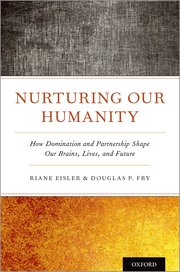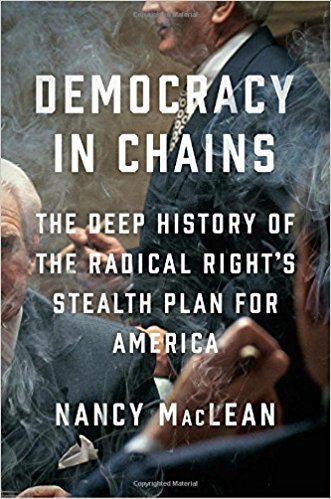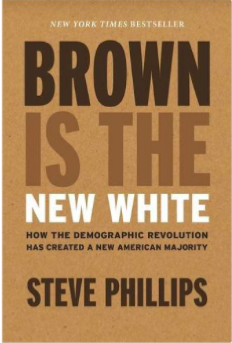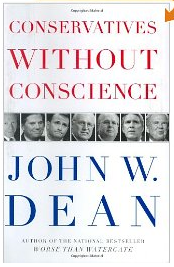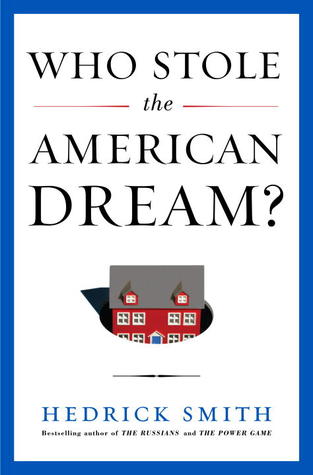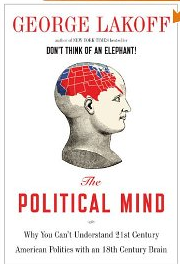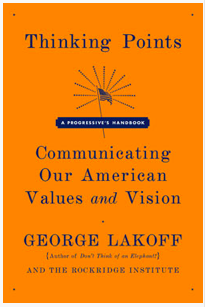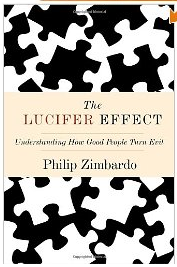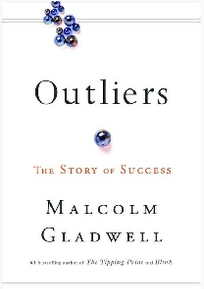Newt Gingrich Makes Stuff Up About Health Care Reform That We Don’t Want Either – On ABC’s This Week, Newt Gingrich said, “Blah, blah, lie, Obama, blah, lie, health care, lie, lie, blah, blah.
To which Stephanopoulos responded: “But that’s not in the bill.â€
Responding to Gingrich’s claims, Howard Dean said that “this is something Newt and I agree on. I don’t want somebody in between the doctor and the patient, I don’t want the possibility of losing health insurance, I don’t want people setting standards or denying care. That’s all what we have now under the private health insurance system. That’s what happens.â€
Dean mentioned that he worked for years as a doctor, and “never once did I have a Medicare bureaucrat tell me what I couldn’t do for a patient, but all the time we have bureaucrats from the insurance companies calling up and saying we’re not going to cover this, we’re not going to pay for that, we’re denying coverage for that. The system we have now is broken. We need to fix it.â€
You see, the things that Republicans don’t want in health care are the same things that Democrats don’t want. We actually agree on these things. It’s just that the Republicans are able to get their people in a rage about things that don’t exist because they don’t want to talk about what’s really bothering them.
McAllen, Texas, is the Most Expensive Town in the Most Expensive Country in the World for Health Care. Why? – It’s not easy to summarize an eight-page investigative article on America’s skyrocketing cost of health care. But, here goes.
Why does McAllen, Texas have twice the health care cost per capita as El Paso County, eight hundred miles up the border, which has essentially the same demographics? Quality is actually better in El Paso. Why is cost even lower but quality much higher in Rochester, Minnesota?
Rochester is the home of the Mayo Clinic. The core tenet of the Mayo Clinic is “The needs of the patient come firstâ€â€”not the convenience of the doctors, not their revenues. The doctors and nurses, and even the janitors, sat in meetings almost weekly, working on ideas to make the service and the care better, not to get more money out of patients. Denis Cortese, the C.E.O. of Mayo, was asked how the Mayo Clinic made this possible.
“It’s not easy,†he said. But decades ago Mayo recognized that the first thing it needed to do was eliminate the financial barriers. It pooled all the money the doctors and the hospital system received and began paying everyone a salary, so that the doctors’ goal in patient care couldn’t be increasing their income. Mayo promoted leaders who focused first on what was best for patients, and then on how to make this financially possible.
But in McAllen, Texas, the core tenet is profit. Doctors own labs and hospitals and get additional money for sending patients for more tests and more surgeries. Some even demand annual payments as much as $5,000 per year to refer patients to a hospital. About fifteen years ago, it seems, something began to change in McAllen. A few leaders of local institutions took profit growth to be a legitimate ethic in the practice of medicine. Not all the doctors accepted this. But they failed to discourage those who did. So here, a medical community came to treat patients the way subprime-mortgage lenders treated home buyers: as profit centers.
Doctors Hospital of McAllen, Texas Makes Huge Political Contributions to Protect Its Profits After reading the previous article, are you surprised? – One of the largest sources of campaign contributions to Senate Democrats during this year’s health care debate is a physician-owned hospital in McAllen, Texas. The Democratic Senatorial Campaign Committee collected nearly $500,000 at a reception here on March 30, mostly from physicians and others affiliated with Doctors Hospital at Renaissance, financial disclosure records show. Another event, in September 2007, brought in at least $800,000 for the committee’s House counterpart, the Democratic Congressional Campaign Committee, according to disclosure reports. The hospital, which is in Edinburg, adjacent to McAllen, is working both sides of the aisle. Its political action committee, Border Health PAC, split $120,000 last year among House and Senate candidates, including Republicans.
Although Congressional negotiations over health care legislation are continuing, Doctors Hospital seems to be getting much of what it wants. Thus far, physician-owned hospitals have been insulated from some of the most onerous potential restrictions in the health care legislation moving through Congress.
Durbin Says He’s Open to a Bill That Does Not Include a Public Option – Dick Durbin, in the name of bipartisanship says he’d be willing to accept a health care bill that does not include a public option. Call Dick Durbin and let him know co-ops are unacceptable.
In Washington, DC-9 am to 6 pm – (202) 224-2152
In Chicago, 8:30 am to 5 pm – (312) 353-4952
You can flood his office with emails too.
What Can We Learn From Sarah Palin? – What do we need to learn from Sarah Palin’s crazy rantings about health care “death panels?†First, we need to really hear her. This is no longer a question of getting the facts straight. Granted, getting the facts straight about health care reform is necessary, and those who provided those facts performed an absolutely vital service. But we’ve moved beyond that point now. As Palin has said, the place we’re at now is about good and evil.
We must meet people in their place of fear instead of insisting that they meet us in our comfort zone — the place of reason. What we need to learn from Palin is that the fight over health care reform is indeed a moral battle. No longer an issue of statistics and parliamentary maneuvers, it’s moved to a different level.
So how does we prevail in such a battle? First, we must see things as they really are, not as how we wish them to be. We must understand that we will face an implacable and destructive Republican opposition for the rest of Obama’s presidency. Second, we need to take on board the insights of Eric Kleefeld and Larry Sabato in this post. As Sabato states in the article, “…something about the negativity motive that seems to result in action. People are willing to spend some time and some effort to oppose something. But rarely are they willing to put out the same effort to support something.” As a result, Democrats are losing the intensity battle with Republicans. Health care reform, and much more, hangs in the balance.
Third, in order to close the intensity gap we need to re-discover the moral fervor that imbued the Obama campaign during the Democratic primaries. Then, we successfully equated voting for him to transforming America into a better, finer place. With an assured moral authority, Obama addressed voters’ fears and conflicts over race, meeting them in their place of discomfort. Rather than continuing to appeal on the basis of reasonableness and logic, we need to have a frank, heartfelt discussion with Americans about their fears over health care reform — over things like rationing, affordability, and loss of control. We can empathize with people’s fears on a gut level and lead them to a better place. And we need to be clear about the malign intentions of those who are trying to thwart reform.
In the end, for better or for worse, whether we like it or not, we are joined in a battle against the forces of anger, hate and grievance. A choice not to engage them on a moral level is an abdication. They will not go away, and they will stalk us the rest of Obama’s presidency unless we face them now.
(The original article was addressed to President Obama. I took the liberty of changing it to address ourselves.)
Don’t Talk To Me About Death Panels – Don’t talk to me about death panels, Sarah Palin. You, who so carelessly bolstered a lie about healthcare reform to score a cheap political point.
You have no idea what it’s like to be called into a sterile conference room with a hospital administrator you’ve never met before and be told that your mother’s insurance policy will only pay for 30 days in ICU. You can’t imagine what it’s like to be advised that you need to “make some decisions,†like whether your mother should be released “HTD†which is hospital parlance for “home to die,†or if you want to pay out of pocket to keep her in the ICU another week. And when you ask how much that would cost you are given a number so impossibly large that you realize there really are no decisions to make. The decision has been made for you. “Living will” or no, it doesn’t matter. The bank account and the insurance policy have trumped any legal document.
If this isn’t a “death panel†I don’t know what is.
So don’t talk to me about “death panels†you heartless, cruel, greedy SOBs, who are only too happy to keep the profits rolling in to the big insurance companies while you spout your mealy-mouthed bumper sticker slogans about the evils of socialism. You don’t even know what socialism is. You don’t know what government healthcare is. You have no … clue about anything except that you lost the last election and you’re pissed off.
Bush Had a Cash For Clunkers Program, Too – Here is the Cash for Clunkers program that was in place during the Bush Administration. The bonus depreciation provisions put in place after 9/11 provided a 50% immediate tax deduction for the purchase of Large SUV’s. So when my boss purchased a $100,000 Range Rover he wrote off $50,000 on his taxes. Assuming a 35% federal tax bracket – this resulted in an immediate tax refund of $17,500 on the purchase of the Range Rover (even though the down payment may have been $10,000). $17,500 cash for the purchase of a 12 mpg Range Rover.
OMG. That looks suspiciously like a tax break to the wealthiest Americans to encourage them to slurp more gas to profit the world’s wealthiest corporations–ExxonMobil, for instance.
I guess you’d call that “cash for wealthy energy sucking, polluting, global warming inducing Republicans.” Now those are some real clunkers.
Regards,
Jim






